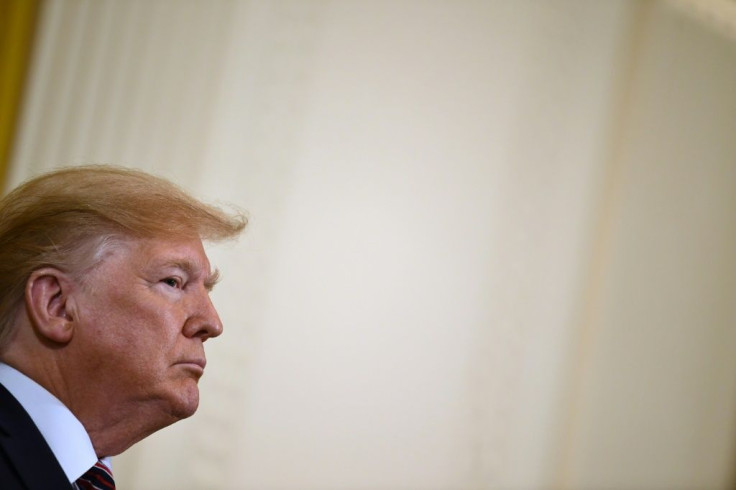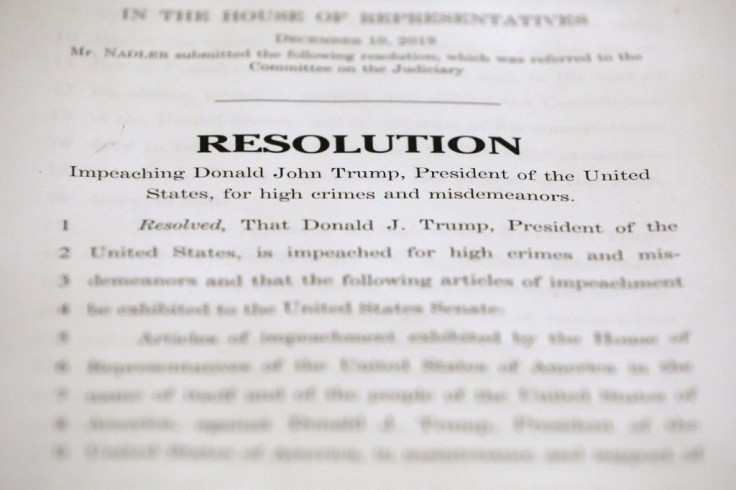Trump On Trial: Vote On Impeachment Looms

The House Judiciary Committee's passage of charges against President Donald Trump on Friday sets up a formal impeachment vote next week.
If passed by the entire House as expected, it would make Trump only the third US president in history to be impeached and placed on trial in the Senate.
The Judiciary Committee passed two articles of impeachment, or formal charges.
The first -- abuse of power -- says Trump wielded the authority of his office to solicit the interference of a foreign government, Ukraine, in the 2020 presidential election.
Trump pressed Ukraine's president, Volodymyr Zelensky, to open investigations into rival Democrats, particularly Joe Biden, who could become the party's nominee in next year's election. And the president held back military aid to Ukraine to pressure Zelensky, Democrats allege.
"In so doing, President Trump used the powers of the presidency in a manner that compromised the national security of the United States and undermined the integrity of the United States democratic process. He thus ignored and injured the interests of the nation," the first article said.

The second article -- obstruction of Congress -- is based on Trump's refusal to abide by congressional subpoenas mandating testimony from his top aides and the production of documents related to the Ukraine allegations.
"This abuse of office served to cover up the president's own repeated misconduct and to seize and control the power of impeachment -- and thus to nullify a vital constitutional safeguard vested solely in the House of Representatives."

The articles of impeachment will be submitted to the entire House of Representatives for debate and a vote, expected on Wednesday next week.
In the case of Bill Clinton in 1998-99, the chamber debated four articles for more than 13 hours over two days, and voted on the second day to approve them.
Approval requires a simple majority, and Democrats hold a 233 to 197 advantage over Republicans, making virtually assuring that Trump will be impeached.
The main question now is whether members of either party will break ranks to side with the other.
Trial in the Senate is expected to take place in January after Congress returns from a two-week Christmas break.
John Roberts, chief justice of the Supreme Court, would preside, and the 100 senators would sit as jurors.
Representatives from the House would act as prosecutors, and the president's attorneys would present his defense.
Senate Majority Leader Mitch McConnell controls the process and could determine how long it lasts.
He has said he discussed with the White House Trump's desire to call witnesses to testify. Without witnesses, the trial could span just two weeks. Clinton's trial had witnesses and lasted six weeks.
Convicting Trump and removing him from office is unlikely. It would require two-thirds of the Senate, and Republicans, who so far remain firmly behind the president, hold 53 of the 100 seats.
"There is zero chance that the president will be removed from office," McConnell said Thursday.
© Copyright AFP 2024. All rights reserved.





















